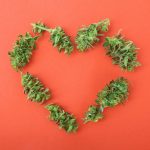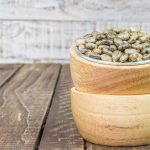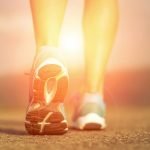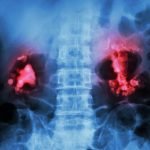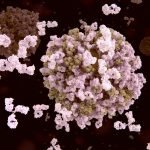The Power of Nature
A recent study showcases the power and importance of getting outside in nature. The study was conducted on individuals with chronic obstructive pulmonary disease (COPD). Typically COPD is considered a degenerative condition, which people do not recover from. And though this study does not show a reversal of disease process, it does show that being in nature has a dramatic and significant effect on inflammation and immune function.1
Forest Bathing
Eighteen individuals with COPD, living in China, were taken either to a forest or an urban setting and allowed to walk around for 3 hours – 1.5 hours in the morning and 1.5 hours in the afternoon. Pre and Post treatment mood was also assessed. After treatment, blood biomarkers in 4 categories were measured including:
- Immune response – mainly looking at T cells: CD8+, natural killer (NK) and NKT-like cells,
- Pro-inflammatory cytokines: interferon (IFN)-γ, interleukin (IL)-6, IL-8, IL-1β, tumor necrosis factor (TNF)-α, and C-reactive protein (CRP) – all of which are elevated at baseline due to pathomechanism of COPD
- COPD biomarkers: pulmonary and activation-regulated chemokine (PARC)/chemokine (C-C motif) ligand 18 (CCL-18); surfactant pulmonary-associated protein D (SP-D); tissue inhibitor of metalloproteinase (TIMP)-1
- Neuroendocrine markers: serum cortisol and epinephrine
Significant Decrease in All Inflammatory Cytokines and COPD Biomarkers
Flow cytometry showed a substantial reduction in perforin-expressing CD8+, NK and NKT-like cells in both forest and urban groups – but much greater in the forest group. Substantial decreases in all inflammatory cytokines and COPD biomarkers were observed only in the forest group, as well as an overall decrease in excitatory hormones and neurotransmitters (cortisol and epinephrine). In the urban group, both cortisol and epinephrine were shown to increase. Significant decreases in tension-anxiety, depression-dejection and anger-aggression were noted in the forest group , but not the urban group.
More than Mental
This study, on “forest-bathing” shows that there is more than merely mental benefit that is derived from being in natural environments. This is wonderful peer-reviewed evidence to support patients to get outside as part of treatment plans, and to communicate with colleagues in other specialties of its benefit as well.
Source:
- Jia BB, Yang ZX, Mao GX, et al. Health effect of forest bathing trip on elderly patients with chronic obstructive pulmonary disease. Biomed Environ Sci. 2016;29(3):212-218
 Node Smith, associate editor for NDNR, is a fifth year naturopathic medical student at NUNM, where he has been instrumental in maintaining a firm connection to the philosophy and heritage of naturopathic medicine amongst the next generation of docs. He helped found the first multi-generational experiential retreat, which brings elders, alumni, and students together for a weekend campout where naturopathic medicine and medical philosophy are experienced in nature. Three years ago he helped found the non-profit, Association for Naturopathic ReVitalization (ANR), for which he serves as the board chairman. ANR has a mission to inspire health practitioners to embody the naturopathic principles through experiential education. Node also has a firm belief that the next era of naturopathic medicine will see a resurgence of in-patient facilities which use fasting, earthing, hydrotherapy and homeopathy to bring people back from chronic diseases of modern living; he is involved in numerous conversations and projects to bring about this vision.
Node Smith, associate editor for NDNR, is a fifth year naturopathic medical student at NUNM, where he has been instrumental in maintaining a firm connection to the philosophy and heritage of naturopathic medicine amongst the next generation of docs. He helped found the first multi-generational experiential retreat, which brings elders, alumni, and students together for a weekend campout where naturopathic medicine and medical philosophy are experienced in nature. Three years ago he helped found the non-profit, Association for Naturopathic ReVitalization (ANR), for which he serves as the board chairman. ANR has a mission to inspire health practitioners to embody the naturopathic principles through experiential education. Node also has a firm belief that the next era of naturopathic medicine will see a resurgence of in-patient facilities which use fasting, earthing, hydrotherapy and homeopathy to bring people back from chronic diseases of modern living; he is involved in numerous conversations and projects to bring about this vision.




